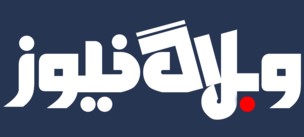Iran Feature: A Blogging Competition (Within Limits)
 Weblognews.irElizabeth Flock of The Washington Post follows up on a story first reported by Deutsche Welle, which is holding its own competition for Best Persian Blog.
Weblognews.irElizabeth Flock of The Washington Post follows up on a story first reported by Deutsche Welle, which is holding its own competition for Best Persian Blog.
Of course, we will be watching to see how EA fares in the Iranian contest:
Iran, a country that holds the “grim distinction” of having arrested and jailed the most bloggers, according to journalist watchdog group Reporters Without Borders, has organized a blogging competition.
The competition, hosted by pro-government news site Weblognews.ir, is called “The Face of ’89” in reference to the Persian calendar year 1389, which just ended on March 20.
The rules of the competition state that blogs that are blocked within the country are not eligible to participate, and is likely to promote only pro-regime bloggers, German broadcaster Deutsche Welle reported Friday.
For several years, the Iranian government has blocked blogs that criticize the regime and even jailed or beaten bloggers.
The 2006 Reporters Without Borders report stated that Iran was on the threshold of joining the world’s most repressive countries in the domain of freedom of the press. “With almost 30 journalists and bloggers in custody, Iran has become the Middle East’s biggest and among the five biggest prisons in the world for journalists,” the report said.
Iranians bloggers say it has gotten much worse since that report was published, especially after the disputed 2009 presidential election, in which foreign journalists were arrested, Facebook was blocked, Twitter access was intermittent, and the online media was warned not to “create tension”.
Omid Memarian, a journalist and former blogger in Iran, says the government has become more aggressive about pursuing blogs as they’ve found out more about them. The government increasingly steals passwords of popular blogs, chases down anonymous bloggers, and goes after bloggers even living outside Iran, he says.
The government cracked down on Memarian for his blog in 2004. He was kidnapped, taken to a safe house, beaten, jailed, and forced to make a confession that his blog was “part of a plan by foreigners to work against national security,” according to Memarian, who now lives in the U.S.
“The range of topics that you can not write about or would be in danger if you did write about has increased over the last few years. Now any criticism of the government is dangerous for you. Society is very polarized. Either with the government or you’re not,” he said.
The goal of competitions like “The Face of ’89,” Memarian believes, is for the government to control “the narrative” by promoting blogs that support their policies.
Iranian blogger Amin Sabeti told Deutsche Welle that the competition shows the government has a “double standard” for social networks. This is because they simultaneously tell Iranians to be fearful of social networks and punish bloggers, yet at the same use these networks and promote them through competitions, Sabeti said.
But Parisa Saranj, and Iranian-American blogger and freelance journalist who writes on the lives of Iranians — particularly women — on her blog Iran Stories, insists the government has always been vocal and active in its use of technology and the Internet.
“Iranians are very tech-savvy and no matter what political or religious affiliations Iranians have, they use Internet and technology to voice their opinion,” Saranj says.
During the past few years, it has become increasingly clear that when a blogger’s opinion does not align with regime policies, the blogger will get punished.
The most famous case is that of Hossein Derakhshan, a Canadian-Iranian who is credited with pioneering Persian blogs in 1991, and whose blog, “Editor: Myself,” became very influential. Derakhshan also wrote for many publications abroad, including The Washington Post, until he was arrested in 2008 and sentenced to 19½ years in prison for creating anti-government propaganda.
Saranj says that following the 2009 disputed election, the government further realized the importance of the Internet for organizing political movements and politics in general, and began to use the Internet as more of a political tool.
Since the election, many Iranian blogs have since shut down, or bloggers have placed extra protection so that their blogs can be read only by invitation. Other bloggers have found a workaround. Memarian says that many who can't blog use Facebook as an alternative platform to share their opinions and spread news, as Facebook is not as closely monitored by the government.
Meanwhile, the first phase of the “Face of ‘89” competition has already completed, with 8,700 participants, according to the organizers. After the first phase, the blog that is in first place is one that leads with a post that says protesters in Bahrain should be suppressed, the second place blog is decorated with photos of former supreme leaders, and the blog in third place has a post that describe how the recent demonstrations in Wisconsin show America is “closer to collapse.”

 Monday, April 4, 2011 at 7:04
Monday, April 4, 2011 at 7:04
Reader Comments